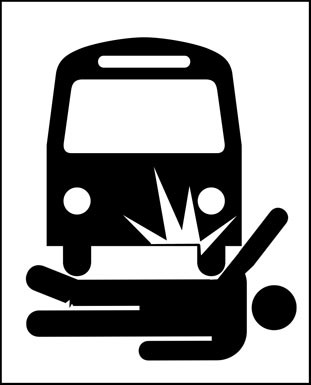It's Easy, Said Idiots: Tips For Finding Out What A Book "Means"


A Hell For Us All
At one point in our life, we have all had the reading experience shot to crap by a teacher who has informed us at the last minute that we will be expected to write a report on the book we were just enjoying five seconds ago. And nothing ruins a good book like being forced to think about it.
If you don’t have a natural interest in or talent for literary analysis, this is especially awful news. It's the worst punishment anyone could give you. It’s like staring at the wall and trying to the find deeper meaning within the butt- ugly pink color. If you went to hell, this is what the devil would make you do for eternity.
When I was in high school, I really struggled with this. Nobody ever sat down and gave me a step-by-step map on how to do it. I was just thrown out the bus door and told to start running. Needless to say, there was a lot of tripping.
I am here to save you from similar humiliation. Bloviating is just a matter of practice, and below are some useful tips that can get the ball rolling.

Nail Down Your First Impression
Odds are that when you are done reading a novel, you feel a certain way about it (a revolutionary idea, I know). Perhaps you went into this as a happy-go-lucky individual loving life, and now you’ve come out wanting to bite pages and blow people up. What has sparked this transition?
Just take a deep breath and try to think about what happened in the novel that could’ve made you feel this way. It’s just a matter of backtracking. Ask yourself some questions:
a) Was it a particular event that made you feel this way?
b) Was it a certain character or set of characters?
c) Did you feel this way right at the beginning, or just at the end? If this feeling wasn’t consistent, what event or character could have made it change?
But perhaps you’ve thought about all this already and the only thing you know is that you hate Tom Sawyer and his stupid fence. Great! You’re officially ready for the second step:
Find Textual Evidence
Now we have to go beyond just coming up with hazy ideas about why a book made us feel a certain way. Here, we are called upon to analyze our feelings. A pain in the ass, I know, but necessary if you want to pass your literature final.
But it’s easier than you think. You already know how you feel, so now you just have to find specific passages in the novel that back up those feelings. Just remember that you didn't feel this way until you read the book; something in its pages unearthed these tortuous undulations of hatred and despair. It's just a matter of nailing the text to the wall.
For instance, the amateur might not think to conclude that Tom’s fence plot is a gross exploitation of friendship and demonstrates a childish need to lord one’s cleverness over others (#showingoffrightnow). But he or she at least knows that the whole incident demonstrates that Tom is a lazy asswad.
First passage already located.
See? You’ll be writing Shakespeare before you know it.
And once you’ve found a slew of paragraphs that you think back up what you have to say, we get to the really fun part:




Discover The “Why”
Now it’s time for you to assert why the characters may or may not have done the things in those specific passages, and what that says about the novel's overall theme. “How should I know?” you’re thinking. “Ask that Twain hack.”
Unless you want to dig him up, that’s not really an option for us right now. But more than that, it’s not Twain’s job to tell you what his book means. What do you think literary analysis is, fair and balanced?
By God, you as a reader have been entrusted with the task of reading things into an author’s work that aren’t there, so do it with some grace. As long as you do it confidently, nobody will even call you out on it (most likely). The "why" can be whatever you want. Twist the words in just the right way and Tom and Huck can mean whatever you want them to mean.
Now, some of you might be saying to yourselves: “That's not very genuine, is it? I’m uncomfortable with writing 500+ words on something I only half-believe myself.” What do you think this is, a society built on the pillars of unshakable ethics? Piss or get off the pot, honest Joe. This is politics. No one has time for your integrity. Fire up that laptop and get cracking.
Embrace Your Shamelessness
Congrats! This completes your literary analysis crash course. Now you can claim with the utmost seriousness at your next book club meeting that Pride and Prejudice is about an alien invasion, and take comfort in knowing that as long as you act like your opinion is the only one that matters, it actually does.
Now get out there and lie with the rest of us. You’ll make a fine addition to the tradition of literary analysis.






